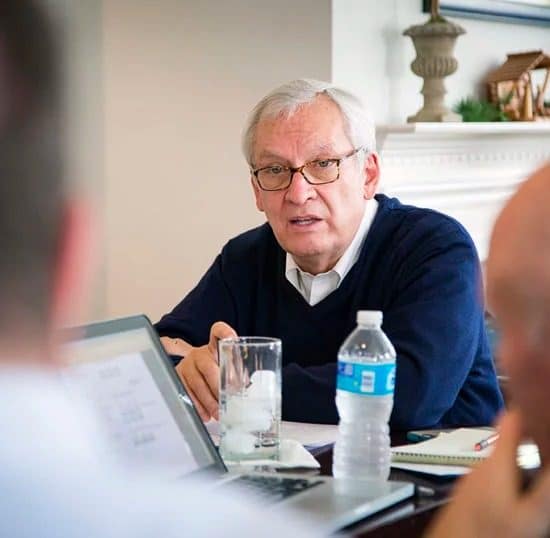Looking to do some research on retirement? Well, the Bible doesn’t use the word “retirement.” Likely, a biblical researcher would find it impossible to locate a good example of a retiree. The concept does not appear to exist in biblical script.

Bill Webb
|
The English word “retire” does not seem to appear in the King James Version of Scripture but it does in at least one other English translation, the New International Version, way back in the fourth book of the Old Testament. It is in Numbers 8:23-25:
The Lord said to Moses, “This applies to the Levites: Men twenty-five years old or more shall come to take part in the work at the tent of meeting, but at the age of fifty, they must retire from their regular service and work no longer.’”
Though the subject is hardly addressed in the Bible, most every teaching in Scripture is just as apt for the retiree (or retiree-to-be) as it is for anyone else. Believers don’t make up a particular age or vocational category, of course. Nor are they limited to a particular economic class, political party or level of education. Their distinguishing mark is their relationship to Christ and devotion to God.
Retirement involves at least minor adjustments and sometimes major changes in lifestyle and perspective.
Retirement might not mean giving up gainful employment. But it might mean giving up a lifelong career or long-term employment and shifting to something different, perhaps less (or more) demanding, with income intended to supplement earnings from Social Security and/or another retirement plan.
Some enter retirement with little preparation beyond at least a modest (if not significant) financial plan for retirement years. On the other hand, some retire with very little financial retirement preparation or with almost no plan. For some, retirement means immediately adjusting the weekday schedule by no longer setting an alarm clock and going through each day totally free from the demands of the work-a-day world. Not much more, and not much less.
Some of us notice that retired friends seem to be as busy as they were in their pre-retirement lives.
Many people — men and women — are so driven by vocation or profession that they find a loss of real purpose when they retire and effectively end ties with a company or a profession. For various reasons, some people do not live very long as retirees. Loss of purpose frequently brings on depression, and overall health often suffers.
Retirement is a big deal that will be increasingly magnified as the population’s life expectancy increases and as retirees live healthier for longer on average.
Good examples, Jerry and Linda Cain are a Baptist couple that has planned and appears to be doing their best to make their own retirement productive, fulfilled and Christ-centered — even though they can still be considered retirement newbies. Minister to senior adults and expert on aging Frank Fain presents the concept of Sabbath for believers to consider as they anticipate and launch retirement.
These days, the average person’s (or couple’s) preoccupation with retirement has to do with financial preparation for the time when the paycheck stops, either carefully anticipated or prematurely and without warning. On average, 10,000 Americans retire daily in the U.S.
More is being written these days about achieving a fulfilling and satisfying retirement beyond the financial aspect. Some experts remind us that a strong financial portfolio at retirement does not guarantee happiness and contentment, and limited resources do not ensure a dire and unfulfilled life after a person or couple’s most productive work years.
Planning is the most consistent theme for retirement advisors. While the financial implications of planning are obvious, evaluating life beyond working hard to make a living is critical.
The adjustment to retirement is not automatically smooth. A study from just a few years ago showed the highest suicide rate for any segment of the population was men over 70 years of age, even higher than the rate for teens. By contrast, older adults with a positive attitude live on average an additional 7.5 years.
Retirees need to reestablish what is most important to them as they enter retirement. This will help them set healthy priorities — and perhaps healthy boundaries. Some may need to reinvest in friendships and/or make new ones. They need to repent of poor lifestyle decisions and change their ways for good. Some find this is a good point in life to try something new.
The advice that is helpful to retirees in the main is wise counsel for younger adults who may still be generations away from retirement years. Plan and prepare for retirement with plenty of lead time. Don’t wait to focus on recovering your health when you are older; take the initiative to live healthier now. Make prudent financial decisions now. And don’t wait until there is more time in retirement before serving God faithfully.
Retirement is best (and less stressful) when it involves shifting gears, not necessarily doing an about face (although some people need to do just that when the time comes). Stay true to who you are, but also be prepared to improve yourself at any age. Each retiree must find her or his own way.
Bill Webb is editor of Word & Way.


